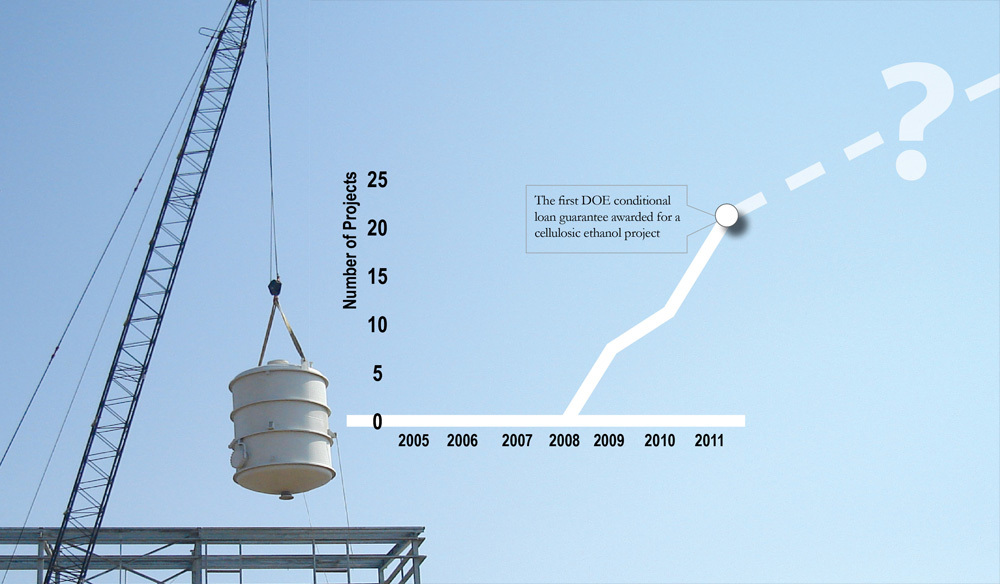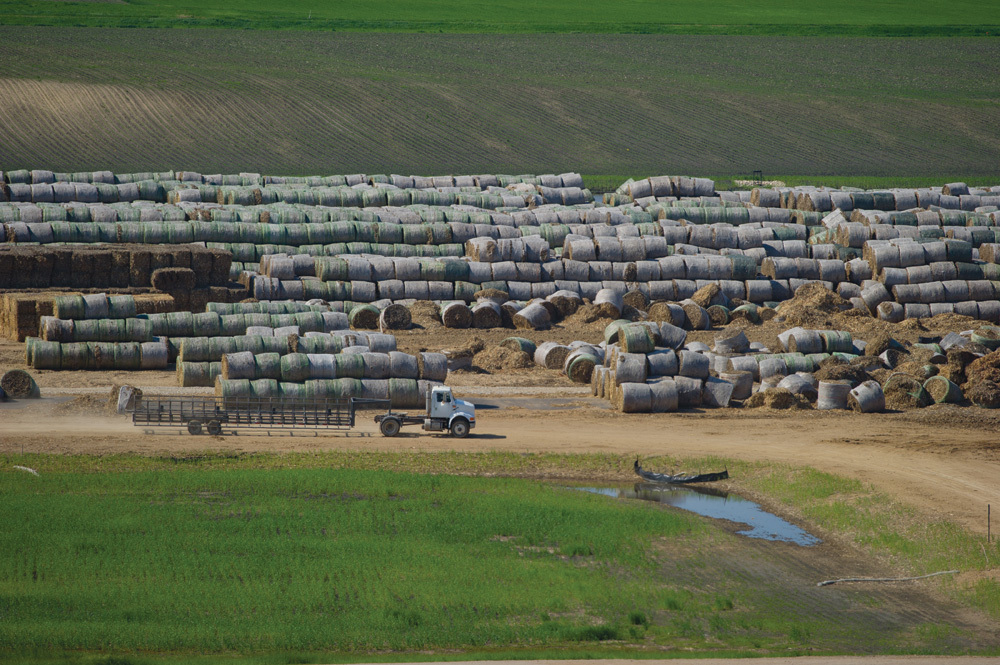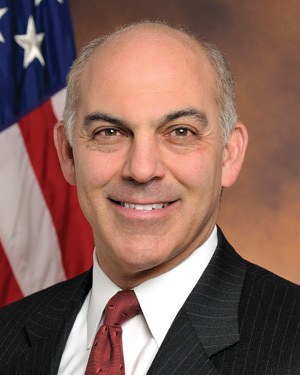Getting Better




August 15, 2011
BY Kris Bevill
In July, the U.S. DOE finally awarded a conditional commitment for a loan guarantee to a cellulosic ethanol project, giving Poet LLC the chance for a $105 million guarantee for its Project Liberty. The announcement was a long time coming for Poet, which, along with other cellulosic biofuel developers, has made it no secret that commercialization of their technologies will be nearly impossible without federal financial support. EPM sat down recently with the head of the DOE’s Loan Programs Office to discuss the loan guarantee program’s slow start and whether Poet’s advancement represents a breakthrough for other biofuel loan guarantee applicants to follow.
Q: Since its inception in 2005, the DOE’s loan guarantee program has gained a reputation for its lack of approved projects. How have you addressed this problem since you took over as executive director in November 2009?
A: The old perception is not the new reality. When the Obama administration took office in January 2009, the DOE loan program had not issued a single loan guarantee in its three-plus years of existence. Since March 2009, the Loan Programs Office has issued 42 conditional commitments for loans and loan guarantees totaling over $40 billion with total project costs of $63 billion. These projects are expected to create or save more than 66,000 direct jobs and tens of thousands of indirect jobs across the U.S.
The unprecedented pace of the past few months—including the issuance of 12 conditional commitments in June alone—is the result of the many improvements we made to the loan programs. For example, we hired dozens of energy finance professionals, increasing our staff from 15 people in 2009 to approximately 175 federal employees and supporting contractors today. We reorganized them into domain-specific teams to capitalize on-staff expertise. We launched an award-winning, online application portal, which reduced evaluation time by more than 65 percent, while improving the overall user experience. We increased and improved communication with applicants and launched a new website to increase transparency into our program and process. By any objective measure, the loan programs have become efficient and effective programs.
Q: Earlier this year, the loan guarantee program was in danger of having its funding cut by Congress. What is the current status for this program?
A: The FY2011 Continuing Resolution provided $170 million in appropriations for the 1703 loan guarantee program to support energy efficiency and renewable energy projects. This is the first time that the loan program has had funds to pay the credit subsidy costs associated with guarantees under the 1703 program. This will enable us to support a small number of projects that we would have been unable to support otherwise. The president’s FY2012 budget requests $200 million in additional funding for the 1703 program.
Advertisement
Advertisement
Q: About how many projects can be expected to be approved in 2012?
A: The DOE anticipates that the president’s FY2012 budget request of $200 million will support $1.5 billion to $2 billion in loan guarantees. Depending on the size of the projects supported, this could equate to one to five projects. In addition, the DOE retains $1.5 billion of authority under 1703 to provide loan guarantees on a “self-pay” credit subsidy basis where the applicant, rather than the government, pays the credit subsidy cost associated with the loan. We expect to issue some loan guarantees on that basis as well.
Q: The 1705 program is set to expire at the end of September. Do you expect to issue more biofuels project awards before the program expires?
A: There are a number of biofuels projects that remain active in our pipeline, and we expect to issue additional conditional commitments to biofuels projects in the future. We also have the ability to support such projects under the 1703 program, which does not have an expiration date.
Q: How does the 1703 program differ from 1705?
A: The 1703 and 1705 programs are often conflated, but they are, in fact, quite different in a number of important ways. The 1703 program was created as part of the Energy Policy Act of 2005 in order to support the deployment of innovative technologies such as biomass, hydrogen, solar, wind/hydropower, nuclear and advanced fossil energy coal that avoid, reduce or sequester greenhouse gas emissions. Until recently, the 1703 program was a “self-pay” credit subsidy program. However, earlier this year, the program received $170 million in appropriated funds to cover credit subsidy costs for energy efficiency and renewable energy projects.
The Section 1705 program was created as part of the American Recovery and Reinvestment Act of 2009 to jumpstart the country’s clean energy sector by supporting projects that had difficulty securing financing in a tight credit market. Section 1705 projects can support innovative or commercially mature technologies that are being employed in renewable energy systems, electric power transmission systems or leading-edge biofuels projects that create jobs, are located in the U.S., and commence construction on or before Sept. 30. Under 1705, applicants are not required to pay the credit subsidy costs associated with the loan guarantees they receive. Those costs are paid by the DOE using monies appropriated by Congress (though applicants still must pay application and other fees).
Q: What level of confidence should the DOE’s offer of a conditional commitment for a $105 million loan guarantee to Poet provide to other cellulosic biofuel producers that have pending applications?
A: Biofuels projects often have characteristics that create financing challenges. However, such projects can make an important contribution to our clean energy economy and we are committed to supporting those projects through the Loan Programs. Our work on Poet and other biofuels projects has helped find ways to resolve some of the financing issues that occur in this sector. We continue to work closely with project sponsors to ensure that their applications receive a thorough, fair and expeditious review, and are given every opportunity to demonstrate that they represent a wise and prudent investment of taxpayer funds.
Q: What qualities did Poet’s project have that made its loan guarantee application successful?
A: Poet’s Project Liberty was an attractive project with several innovative features. It is one of the nation’s first commercial-scale cellulosic ethanol plants and will generate more than 200 green jobs in Iowa. Unlike many conventional corn ethanol plants, it will use corncobs, leaves and husks to produce ethanol, rather than using competing feed grains like corn. Project Liberty will use an innovative enzymatic hydrolysis process to convert waste into ethanol, and will produce enough biogas to power both Project Liberty and Poet’s adjacent grain-based ethanol plant. The project will displace more than 13.5 million gallons of gasoline annually and Poet has plans to replicate the project at its 26 other corn ethanol facilities, creating a series of plants with a projected combined annual capacity of 1 billion gallons per year of cellulosic ethanol.
Advertisement
Advertisement
The DOE’s offer of a conditional commitment for $105 million demonstrates our commitment to biofuels and towards advancing the commercialization of cellulosic ethanol.
Q: What factors have contributed to the fact that no other cellulosic biofuels projects have been awarded DOE loan guarantees to date?
A: While we received many applications for potentially transformative technologies, many were not ready for commercial-stage deployment. In addition, some biomass applications have significant technology, production and commodity price risks that present challenges to ensuring that they comply with the Title XVII requirement that there be a “reasonable prospect of repayment” for each loan guaranteed. With more time to develop and mature, we expect that some of these projects will be ready for our program in the near future.
Q: What qualities do wind and solar projects offer that have made them more able to navigate successfully through the program?
A: While it is difficult to make comparisons across technologies, it is fair to say that one important difference stems from the fact that wind and solar generation facilities tend to benefit from long-term power purchase agreements. Defined offtake arrangements such as these—which many advanced biofuels projects lack—help demonstrate a project’s long-term ability to repay a loan.
Q: Ethanol groups have repeatedly called for reform of the DOE loan guarantee program to make it more accessible for cellulosic biofuels projects. Specific issues of concern include long-term offtake agreements and feedstock agreements. How is the DOE addressing these concerns?
A: While the DOE does not require offtake agreements for biofuels projects, they are desirable and enhance a project’s credit-worthiness. It’s important to keep in mind that the loan programs are only one of several financial incentives that biofuels developers can use to advance their projects. DOE invests heavily in energy research and development and demonstration programs for biofuels, including numerous cost-shared grants. Additionally, the DOE, the USDA and the U.S. EPA have formed a working group to explore other ways to support the industry.
Q: It has been mentioned that Congressional reform may be necessary in order to overhaul the DOE loan guarantee program. Given that many observers believe the level of dysfunction in Congress has never been higher, what is the likelihood that reform of the program will occur this session?
A: We are constantly looking for ways to improve the efficiency and effectiveness of the Loan Programs Office and believe the programmatic changes we have made to date have already had a significant impact. Consider that in 2009, we financed eight projects; in 2010, we financed 11; and this year, we’ve supported 23 projects to date. That said, we look forward to working with Congress to the extent there are other improvements that would require legislative changes. Significant future improvements, however, are only relevant if there are adequate funds to invest.
Q: There also appears to be growing opposition to biofuels, specifically ethanol, in Congress. How heavily do the preferences of Congress affect the DOE’s decision to approve projects for financial support?
A: The DOE reviews each loan guarantee application on its own merits against a common set of criteria outlined in each solicitation and makes a decision based on how well they meet that set of criteria. Biofuels are included in the set of technologies we are looking to support.
Q: Agriculture Secretary Tom Vilsack joined Energy Secretary Steven Chu to make the announcement regarding Poet’s DOE loan guarantee offer. Earlier, President Obama created a biofuels working group bringing the agencies together to coordinate their work. Is this an indication that the collaborative effort is making progress? What else may be ahead?
A: The close working relationship between the various agencies that work on biofuels-related matters is a testament to the administration’s strong support for advanced biofuels, and the shared belief that such fuels have an important role to play in our clean energy future. We believe Poet’s conditional commitment is a positive sign for the industry and we hope to approve even more biofuels projects in the near future.
Q: It has been repeatedly stated that the purpose of federal loan guarantees is not to pick winners. However, it appears that by simply approving projects some technologies and projects are given an advantage over others. How do you respond to the argument that the federal government’s approval process inherently chooses winners?
A: We do not pick winners and losers. We pick innovative projects that can be successfully financed. We deliberately and regularly back competing technologies within a single energy sector to ensure there are multiple technologies introduced to the market. Think of us as a shadow bank. We are active in energy sectors where private capital markets have not yet become meaningfully involved, and when they do, we exit.
Q: As you are aware, cellulosic ethanol producers believe federal loan guarantees are vital to assisting them breach the valley of death. What advice can you offer potential applicants to the program who may be discouraged by the lack of funding awards for biofuels projects to date?
A: Biofuels have an important role to play in the nation’s future energy mix. We need to work together to ensure that there is a funding template that works for biofuels projects, and adequate future funding to support them.
Author: Kris Bevill
Associate Editor, Ethanol Producer Magazine
(701) 540-6846
kbevill@bbiinternational.com
On the Web: The U.S. DOE’s Loan Programs Office recently overhauled its website to make it more user-friendly and provide comprehensive resources for program applicants: http://loanprograms.energy.gov/
Upcoming Events





